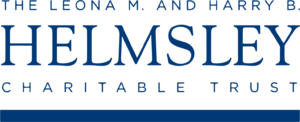Islets for Alpha Cell Research in Type 1 Diabetes
nPOD Islet Isolation Programs for the Helmsley Alpha Cell Initiative

The Network for Pancreatic Organ donors with Diabetes (nPOD) Program for Isolation of Islets from Individuals with Intermediate to Long-Standing Type 1 Diabetes (T1D)
Following the successful completion of a pilot study to determine the feasibility of isolating islets from the pancreas of organ donors with T1D, nPOD is pleased to announce the launching of two new follow-up islet isolation programs. These programs will collectively addresses a series of major knowledge gaps in our understanding of T1D including a critical need to characterize phenotypic and functional aspects of immune cells, islets, as well as the exocrine pancreas, after the clinical diagnosis of T1D. We envision programs where isolated islets will be used by investigators to address numerous hypotheses as well as develop cutting edge methodologies/technologies key to T1D research and care. Indeed, we believe the results from these efforts have a high potential to reveal significant, novel, and translatable information regarding islet cell dysfunction that will be of therapeutic benefit for individuals with both established T1D and potentially, extend to persons with pre-T1D (i.e., prevention). The feasibility for these projects found support with results from a pilot nPOD islet isolation project that was completed in early 2018. During this pilot study, nPOD recovered islets, with high efficiency, from four donors with T1D (2-6 year duration of disease) and successfully distributed these cells to investigators for the performance of several meaningful studies.
Program Designs – nPOD will continue to isolate islets under two settings. Under the first program, called nPOD-IIP (Islet Isolation Program), islets will be recovered from individuals with T1D having a disease duration of three years or less. They will subsequently be distributed to nPOD investigators, working groups, and core laboratories with the ultimate goal of seeing an integration of scientific data obtained from these cases to better understand the disease, as noted above. The nPOD-IIP will be overseen by Drs. Clayton Mathews and Alberto Pugliese. Operating alongside the nPOD-IIP will be a second effort, announced here, termed nPOD-IIPLT (for Long-Term). This program will obtain islets from T1D patients with a disease duration of more than three and up to 10 years. nPOD-IIPLT will have leadership provided by Drs. Mark Atkinson and Al Powers.
Why two programs? In short, the scope of operations provided by the nPOD-IIP will be far broader than those of nPOD-IIPLT, allowing the latter effort to establish itself quickly, be nimble in form, and limited in terms of the number of investigators served. In addition, the nPOD-IIPLT will work in close cooperation with an existing effort, supported by The Leona M. and Harry B. Helmsley Charitable Trust, directed at understanding alpha cell biology as well the role of these cells in T1D from a physiological and therapeutic perspective. Indeed, the Helmsley Charitable Trust recently issued an invitation-only funding opportunity announcement titled, “The Helmsley Type 1 Diabetes Program seeks to fund long-term studies to understand alpha and delta cell dysfunction and restore glucagon secretion in type 1 diabetes.” Potential exsists that the nPOD-IIPLT program would provide investigators islets in support of studies resident this program.
In the end, we believe the two islet isolation efforts, using somewhat similar infrastructure, will be complementary and informative to each other.
Program Offerings/Considerations – In brief, the goals and objectives of the nPOD-IIPLT program include:
- The nPOD-IIPLT will attempt to isolate islets from 6-8 T1D organ donors over the next two years.
- Importantly, the isolation of islets from donors with increasing disease duration has been shown as technically challenging. Hence, while all reasonable efforts will be given to meet investigator needs, it is unclear whether all isolations will successfully yield sufficient number and purity of islets.
- The program will NOT be obtaining or distributing control islets (we suggest individuals contact the NIH IIDP effort).
- nPOD-IIPLT islets will be shipped to investigators following their isolation (i.e., no culture), free of charge, with the exception of costs associated with shipping.
- Interested investigators will be asked to submit a brief proposal outlining the goals and rationale for their request as well as specific needs (e.g., cell number, form). These requests will be considered by a review team comprised of JDRF, The Leona M. and Harry B. Helmsley Charitable Trust, and nPOD staff.
- Please note that because of the legal requirements associated with the distribution of tissues from organ donors, all participating investigators will be required to have submitted the aforementioned project application and to have returned the appropriate signature pages, MTAs, and IRB exemptions.
- All islets will undergo functional evaluation by the NIH Human Islet Phenotyping Program (HIPP) of the NIH-IIDP, overseen by Dr. Marcella Brissova, from Vanderbilt University. The nPOD-IIPLT will also be in close communication and when possible, integrate efforts with Vanderbilt University (Dr. Al Powers), in support of their NIH-funded efforts to establish methods for islet isolation from individuals with an extremely long duration of disease (e.g., >10 years).
- Investigators receiving islets from either program are required to share and deposit, at nPOD, data generated from their efforts.
Extended Information and Contacts – A webinar was held on August 21, 2018, to provide additional details regarding the nPOD-IIPLT program. If interested, use the links provided to download slides and/or watch the webinar video presentation. Thanks are extended to JDRF and The Leona M. and Harry B. Helmsley Charitable Trust for provision of financial support that make these programs possible. Additional information regarding these programs will be made available on the nPOD website (www.jdrfnpod.org). Individuals should contact Dr. Irina Kusmartseva (inkusmartseva@ufl.edu) if interested in receiving islets from the nPOD-IIPLT.